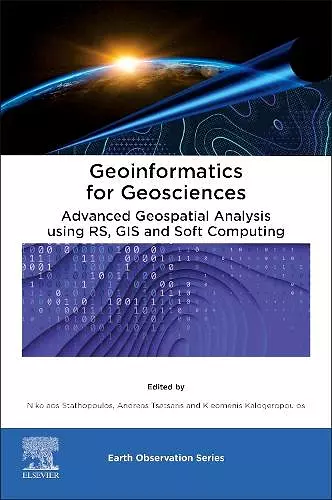Geoinformatics for Geosciences
Advanced Geospatial Analysis using RS, GIS and Soft Computing
Nikolaos Stathopoulos editor Andreas Tsatsaris editor Kleomenis Kalogeropoulos editor
Format:Paperback
Publisher:Elsevier - Health Sciences Division
Published:12th Jun '23
Should be back in stock very soon

This comprehensive guide explores advanced methodologies in Earth observation, geospatial analysis, and soft computing, addressing various environmental and socioeconomic challenges while providing researchers with innovative techniques for geoscience applications.
"Geoinformatics for Geosciences: Advanced Geospatial Analysis using RS, GIS and Soft Computing" serves as an extensive resource for understanding the methodologies and techniques applicable to Earth observation data assessments and geospatial analysis within the geosciences. The text delves into a wide range of spatiotemporal issues, addressing critical topics such as environmental concerns, geohazards, urban studies, health impacts, pollution, climate change, resource management, and geomorphology.
The book is structured into sections that focus on various aspects of geoinformatics, including environmental and climate challenges, geomorphological data analysis, and the implications of natural and human-induced hazards. It also explores the socioeconomic dimensions of these issues, providing a holistic view of how environmental conditions and changes can affect communities and ecosystems. By integrating diverse topics, the book highlights the interconnectedness of geosciences and the importance of comprehensive analysis in addressing contemporary challenges.
With a focus on the latest techniques in geoinformatics, this book equips researchers and academics with the tools needed to combine current data with innovative methodologies. It serves as a guide for effectively tackling complex problems in the geosciences, emphasizing the role of advanced geospatial analysis, remote sensing, and soft computing in understanding and mitigating the impacts of environmental changes. Overall, it is a valuable reference for anyone looking to deepen their knowledge and apply these techniques in practical settings.
ISBN: 9780323989831
Dimensions: unknown
Weight: 1000g
404 pages